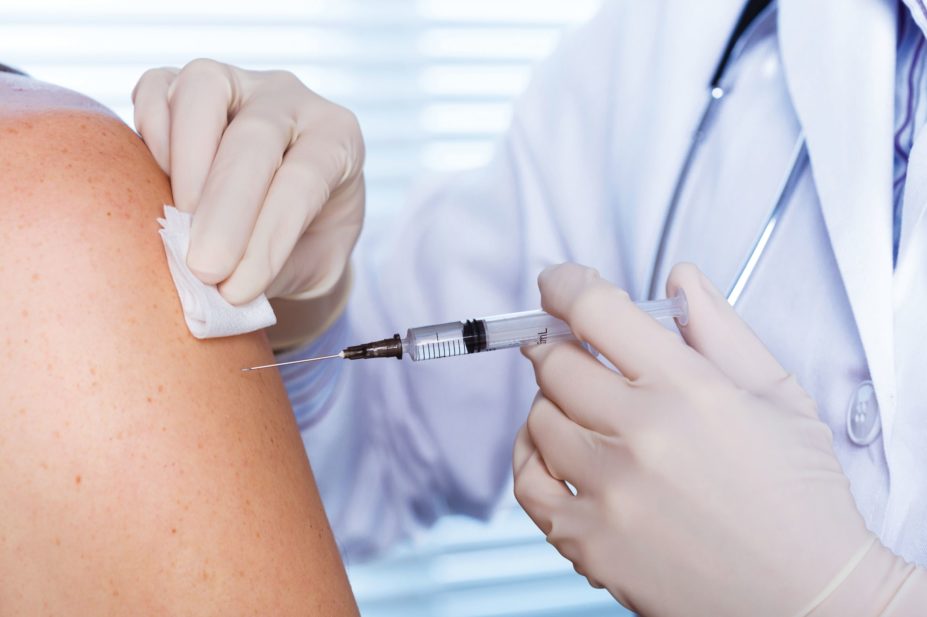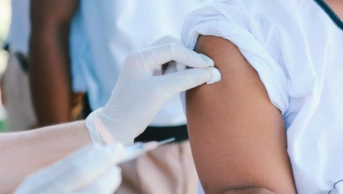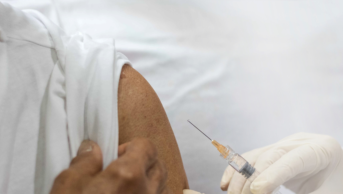
Shutterstock.com
Tensions between pharmacists and GPs have risen after claims that one GP practice in the Midlands sent a text to patients saying that vaccines offered by community pharmacists were ‘less safe’ than those offered at local surgeries.
Chief officer of Doncaster, Rotherham and Nottinghamshire Local Pharmaceutical Committees, Nick Hunter, claimed patients had also been told that going to a pharmacy for the vaccine threatened the financial viability of GP practices.
He added that one GP practice had allegedly turned off its electronic prescription service (EPS) so that patients were forced to pick up their prescriptions in person from the surgery where they were then offered the vaccine.
He said the practice had restored its EPS after the LPC raised the issue with the local clinical commissioning group and NHS England, but that it had led to growing tensions between the two professions.
Hunter told The
Pharmaceutical Journal: “Last year it was more about patients not supporting the NHS if they had their vaccine done by their pharmacist. This year the message is about the service being ‘less safe’ and that patients are more at risk if they go their pharmacist rather than their GP.
“I think some practices feel threatened, but it’s disproportionate as for every one vaccine done by a pharmacist, ten are done by a GP. Some practices are being disingenuous about the pharmacy service and rubbishing pharmacists, which is unprofessional.”
But he pointed out that it was only in a minority of practices where there had been a problem.
Hunter, who said he was also aware of tensions in other parts of the country, is advising pharmacists to contact their LPC, CCG or NHS England if there is any professional conflict with GPs over flu vaccination.
“We will try and resolve the issue rather than allow it to develop into a public bun fight,” he said.
In Greater Manchester, the LPC also had to intervene after a GP displayed a poster claiming that it cost the NHS more if the flu vaccine was given by a community pharmacist.
LPC chief executive officer Adam Irvine said: “The poster said that pharmacists are paid more to do the vaccine. That’s obviously not true and the poster was taken down. It was only up for about a day.
“There have been a couple of similar incidents but in the majority of cases the relationship between GPs and community pharmacists has been harmonious.”
The comments from the LPCs come as GP leaders have publically criticised the decision by NHS England to again give community pharmacists in England the option to deliver this season’s flu vaccine as part of their national contract.
Last winter, community pharmacists administered 950,765 flu vaccinations under the national NHS Flu Vaccination Service, according to NHS Business Services Authority figures.
Almost three-quarters of community pharmacies in England, (8,451 or 71.2%) delivered an average of 113 flu vaccinations in 2016–2017, with three pharmacies administering more than 1,000 vaccinations each.
In a statement, Andrew Green, GP clinical and prescribing policy lead at the British Medical Association (BMA), said the vaccination process was important but that there was no conclusive evidence that the winter flu vaccination service had demonstrated a significant increase in overall uptake.
“We remain concerned that the current remuneration arrangements do not adequately recognise the increased costs incurred by GPs in ensuring that all patients, including those that are hard to reach, have access to immunisation,” he said.
Green said the decision to recommission the community pharmacy vaccination programme would “surprise” many GPs.
“In some areas this approach has undermined the good working relationships between practices and pharmacists which has long-term implications that reach well beyond the flu campaign.”
However, his views are not universally shared by Local Medical Committees (LMCs), which represent GPs at the BMA.
Londonwide LMCs, which speaks on behalf of 7,000 GPs across the capital, has welcomed the involvement of pharmacists in the vaccination programme because it relieves pressure on GP practices.
Londonwide LMCs’ spokesperson Mark Howard told The Pharmaceutical Journal: “GPs in London are working a 12-hour day so anything which helps reduce their workload is a good thing.”


